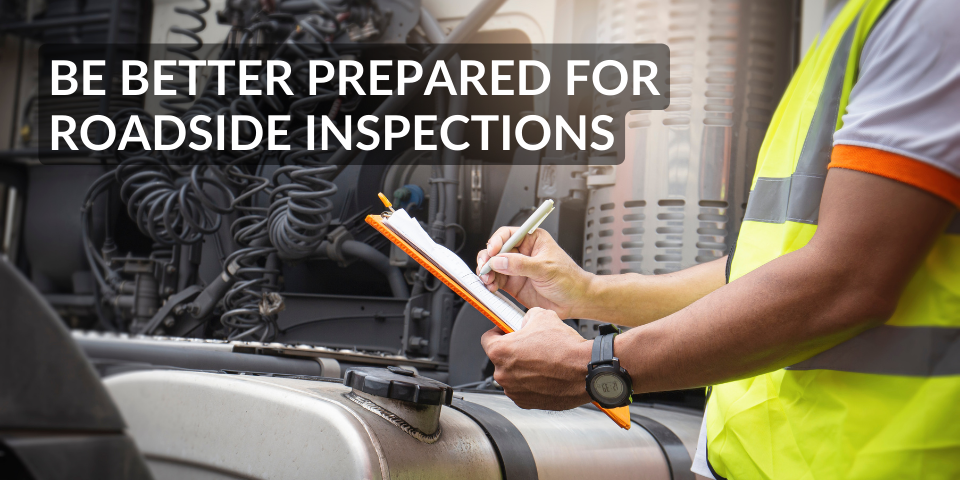Be Prepared for Roadside Inspections - News

Be Prepared for Roadside Inspections
Sep 19th 2022 8:00AM
Recently, the FMCSA (Federal Motor Carrier Safety Administration) held its annual Brake Safety Week. It’s the annual commercial motor vehicle brake-safety inspection, enforcement and education initiative conducted by law enforcement agencies across North America. During Brake Safety Week, inspectors conduct their usual Level I and V inspections and report all brake-related data to the CVSA (Commercial Vehicle Safety Alliance).
Brake-related violations typically relate to the largest percentage of all out-of-service vehicle violations cited during roadside inspections. According to last year’s three-day International Roadcheck data, brake systems and brake adjustment violations accounted for 38.9% of all vehicle out-of-service violations, which is the most of any category of vehicle violations.
Be mindful of your brakes and be mindful of your inspection status.
Roadside Inspections
For those who don’t know, the FMCSA ensures that trucking fleets and owner operators comply with safety regulations by conducting roadside inspections of various commercial motor vehicles. Inspections occur every day but there are also targeted safety blitzes like the International Roadcheck or the recent Brake Safety Week.
About 4 million commercial motor vehicles are inspected each year using the CVSA’s North American Standard Inspection Program. There are different levels of inspections, and regardless of when an inspection occurs, if inspectors find a serious issue a truck can quickly be put out-of-service until the problem is fixed.
Just this past June, inspectors took 1,290 trucks off the road and put them out-of-service for brake related issues during an unannounced Brake Safety Day, which takes place once a year. During 2021’s Roadcheck, inspectors removed 6,710 commercial motor vehicles from the road.
Safety is Taken Very Seriously
The transportation industry has a lot of work to do to make sure the trucks going out on the roads are as safe as possible. Even more so because new truck deliveries across the nation have been delayed due to the microchip shortages, and many fleets are still operating with older vehicles, which typically need more maintenance.
It’s a good time for owner operators and fleets to perform a review of all of your vehicle inspection and maintenance procedures. Make sure drivers are doing their due diligence and performing their pre-trip inspections, which cannot be stressed enough. Drivers who routinely make sure they conduct their pre- and post-trip inspections will help ensure that their vehicle is not placed out-of-service.
Preventive Maintenance is Key
It may be a good idea to conduct refresher courses on how to properly complete a pre- or post-trip inspection. Reminding drivers of how important these routine inspections are will help catch an issue before it becomes a problem. Addressing the issue in the shop far outweighs the amount of revenue lost if the truck isn’t kept up to par with regulations, thus being taken off the road.
Drivers should be completing DVIRs (Daily Vehicle Inspection Reports), and carriers should be paying close attention to them. Make sure the company will attend to and fix any problems that the driver notes on those reports. It can be detrimental to a driver when complaints they’ve pointed out are not being addressed.
There may never come a day when all trucks and commercial vehicles are hitting all the right safety notes at the same time. But by being proactive and keeping a solid line of open communication between carrier and driver, the risk of out-of-service time and safety violations can be minimized.


